TN Forest Officer Protects 100-Acre of Mangroves, 40000 Turtles & More, Wins Global Award
Ramanathapuram forest range officer S Sathish has worked for over five years to mitigate poaching, saving the Olive Ridley Turtle, carrying out underwater plastic waste clean ups, and more to protect the Gulf of Mannar Marine National Park in Tamil Nadu.

Ramanathapuram Forest Range Officer S Sathish is a local hero, known for his stellar efforts in environmental conservation. Whether it’s bringing down the organised crime of poaching, saving the Olive Ridley Turtle, organising underwater plastic clean-ups, or growing 100 acres of mangrove forest, the 35-year-old officer from Tamil Nadu has left no stone unturned in reserving the Gulf of Mannar Marine National Park, a property that sprawls across 6,000 square feet.
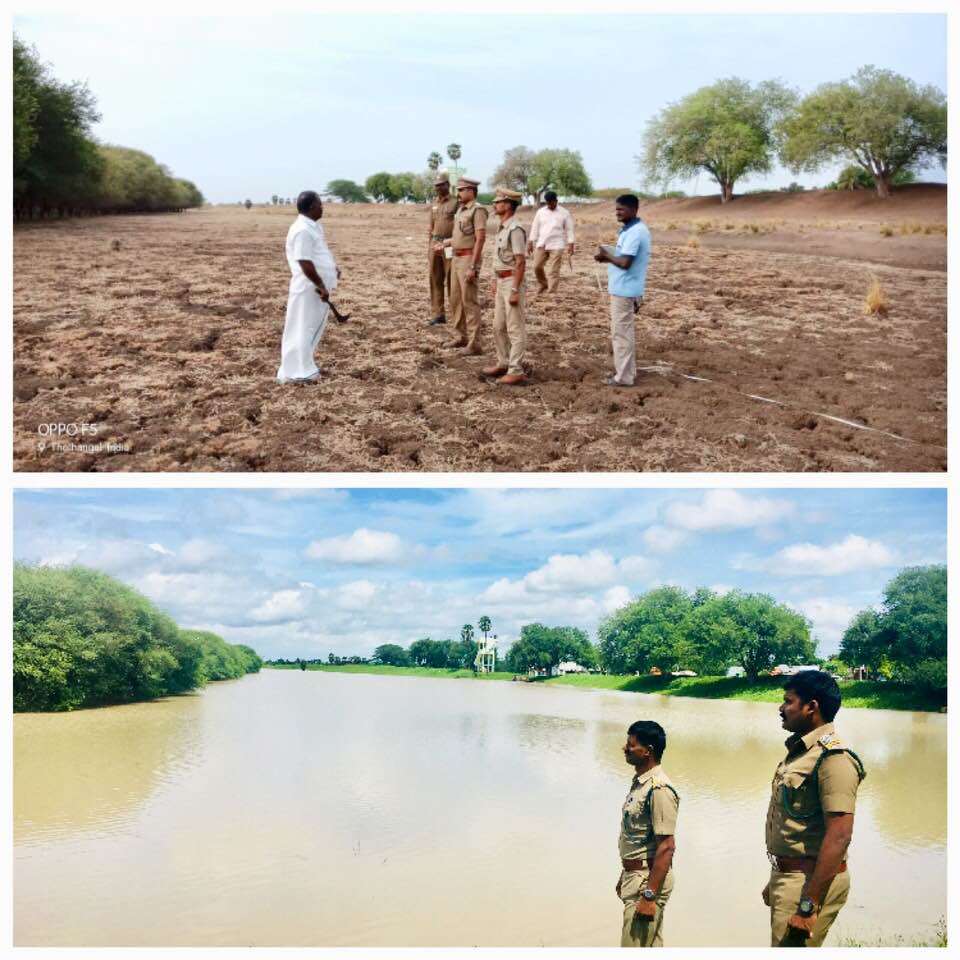
The International Union for Conservation of Nature (IUCN), Switzerland, recently awarded him the ‘International Ranger Award 2021’. Besides him, Mahendra Giri from Rajaji National Park in Uttarakhand is the only Indian to have won this award.
The prestigious award aims to identify the remarkable works undertaken by forest range officers all over the world. The winners receive a commemorative plaque, a custom uniform patch to signify their achievement, and $10,000 to support their work.
Sathish was nominated by K Siva Kumar, a senior scientist from the Wildlife Institute of India. The duo has worked together for wildlife conservation on several occasions.
“Over the last two decades, I have worked and guided more than 400 officers on developing a flourishing marine biodiversity. Very few officers like Sathish have an eagerness to learn, adapt and sustain initiatives for a long period of time. His dedication to cut down illegal activities, gain his staff’s confidence, and mobilise the local communities is what caught my attention. I remember that he was not too happy about being posted here since it is a remote area, but he kept himself motivated till he settled in. He was the first person who came to my mind when the nominations were announced. He is setting an example of how it’s not necessary that a forest officer focuses only on land, and how they can also highlight issues pertaining to marine life,” Sivakumar tells The Better India.
Needless to say, the job of a forest range officer is never easy. They have to risk their lives every day and work in unfavourable terrains. Additionally, they deal with poachers, encroachers, mafias and the wildlife while carrying out their duties.
Sathish, too, has faced the wrath of people and animals alike in the course of his initiatives, but his innovative ways to solve problems while causing minimal collateral damage is what makes him a brilliant officer.
“I am very honoured to have received this award, and hope it encourages people to have more faith in us, as well as the youth to enter this profession. There are threats and challenges in this field, but at the end of the day, it is the difference you make that matters. I want to dedicate the award to all the forest ranger officers and guards who work tirelessly against all odds,” Sathish tells The Better India.
First breakthrough
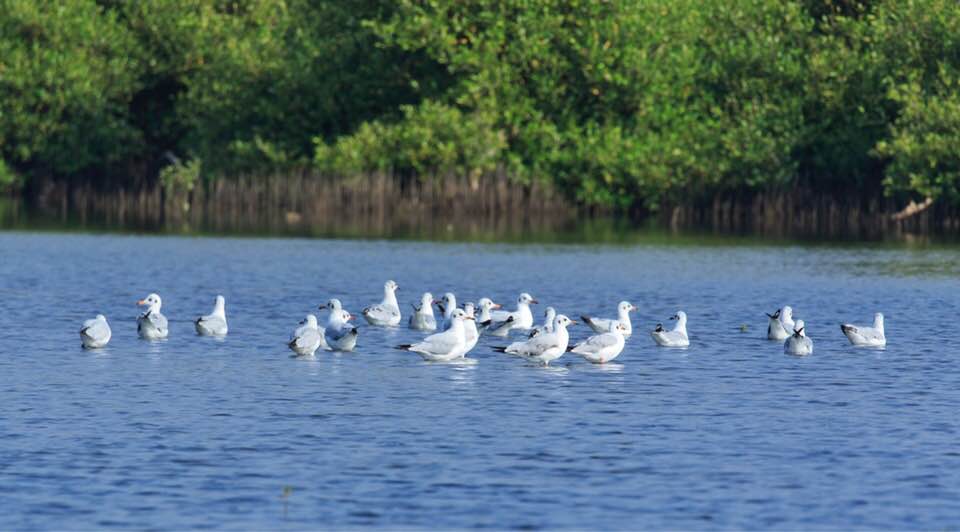
Sathish grew up in Thalavadi village of Erode district, which is famous for the Sathyamangalam Wildlife Sanctuary. The fringe areas of the sanctuary are in close proximity to the village, so as a kid, he would often sight rare birds and plant species. The joy of learning the names of different species and listening to fascinating stories of what happens inside the forest from officials was unparalleled, he says.
Sathish began thinking about joining the profession more seriously after Class XII, and joined the Forest College and Research Institute, Mettupalayam, in 2004.
“I was torn between medical and forestry, but in my heart, I could see myself happily working in forests and protecting animal and plant species that I grew up listening stories of. I also pursued an MSc in Environment Science, and then started preparing for the UPSC. I gave two attempts but couldn’t clear them, so I appeared for the Tamil Nadu civil services in 2011. Four years later, I was posted as the Forest Range Officer (trainer). In 2016, I took charge as the range officer,” says Sathish.
Of the many existing problems, Sathish chose to first address the illegal smuggling and poaching of sea cucumber, a marine animal listed under Schedule I of the Wildlife Protection Act, 1972. The creatures, priced in lakhs, are considered aphrodisiacs and are illegally traded in South Asia for use in food dishes and medicines.
“Despite the blanket ban and efforts taken by the forest departments, the kingpins were routinely smuggling. Through targeted and responsive patrols, we collected evidence of more than 100 poaching attempts while protecting the sea cucumber population. We found around four spots for smuggling and increased the security there by deploying a team of 25 forest officials. We registered 70 cases against the offenders, and pleaded with the judge to increase their serving sentence. We even took the judiciary department to the seas to showcase the marine diversity and endangered species. We also roped in local fishermen and villagers to help us identify the habitats of sea cucumbers and in return, we generated employment via the ‘Kaarankaadu Community-Based Ecotourism’ project,” Sathish explains.
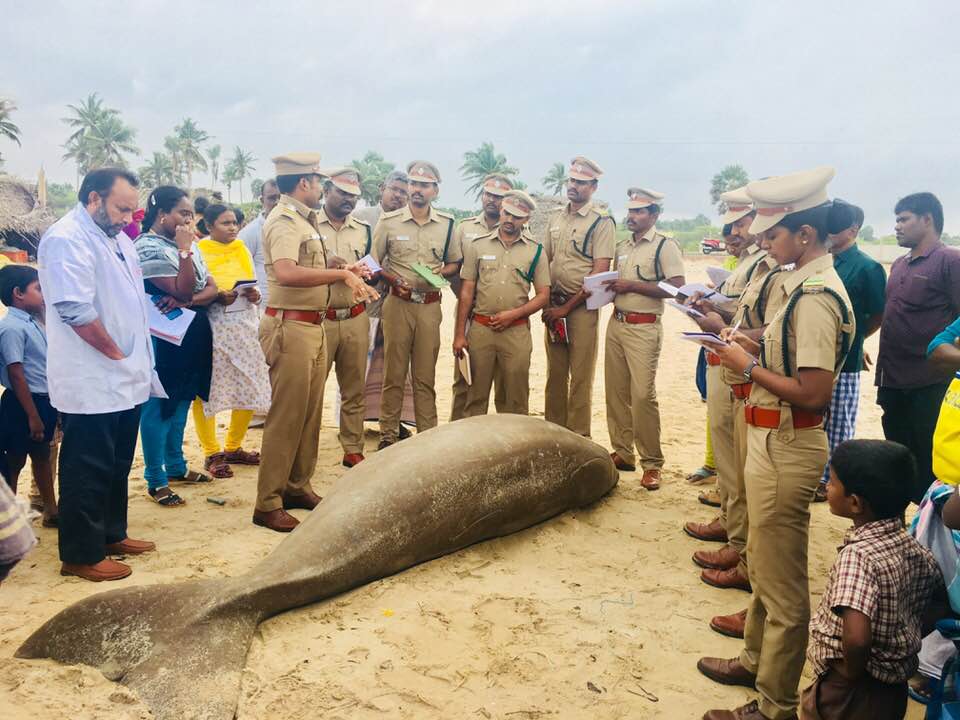
The successful implementation of the sea cucumber project helped Satish carry out a similar initiative to conserve sea cows, or dugongs, another endangered marine species that play a role in climate change.
“Dugong thrives on seagrass meadows, which suppress 11% of organic carbon buried in the ocean. We created habitats by planting and restoring seagrass. Additionally, we formed Dugong clubs, which are responsible for spreading awareness about the species. The WII helped us with the finances and awareness as well. We are encouraging people to post videos of dugongs and make the animal a local marine ambassador,” he adds.
Since poaching has helped misguided locals earn quick money, executing the two projects and arresting the mafias was a challenge. Sathish says his team was often ambushed by the mob, rallied against, and given threats. He credits the state police department and the Indian Coast guards for providing necessary protection.
Mangrove forestation, Olive turtles, and more
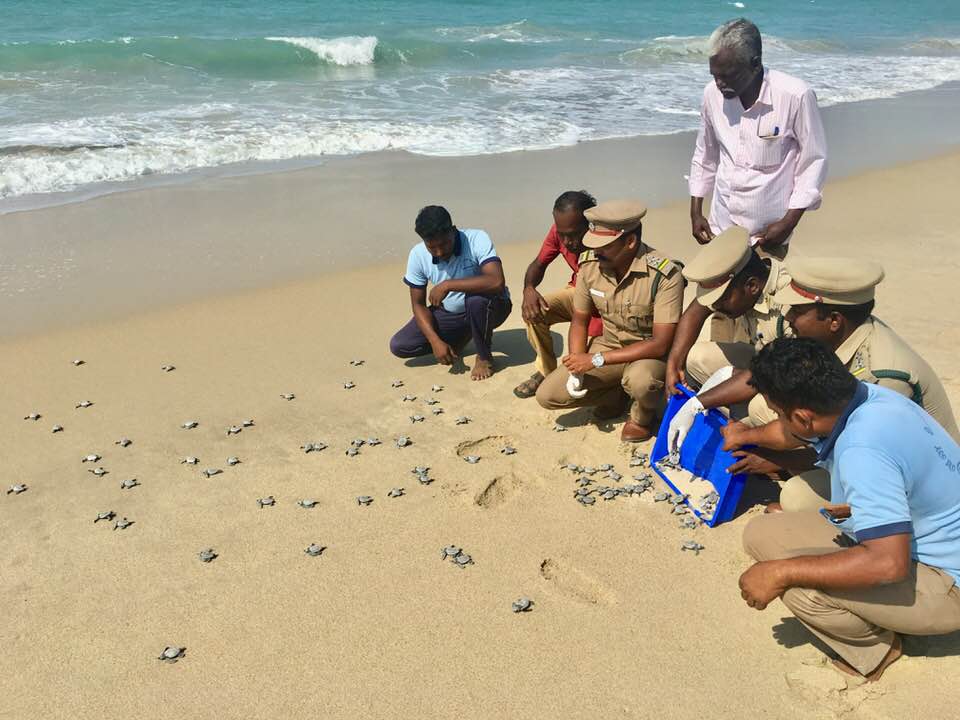
Stretching for over 60 kilometres, the rich mangroves, comprising eight plant species, were once a thriving habitat for crabs. This in turn had proved to be a livelihood option for the fisherfolk. However, over the years, the mangroves have depleted due to encroachments and deteriorating water tables. At present, there are only two species, Avicennia and Rhizophora that remain.
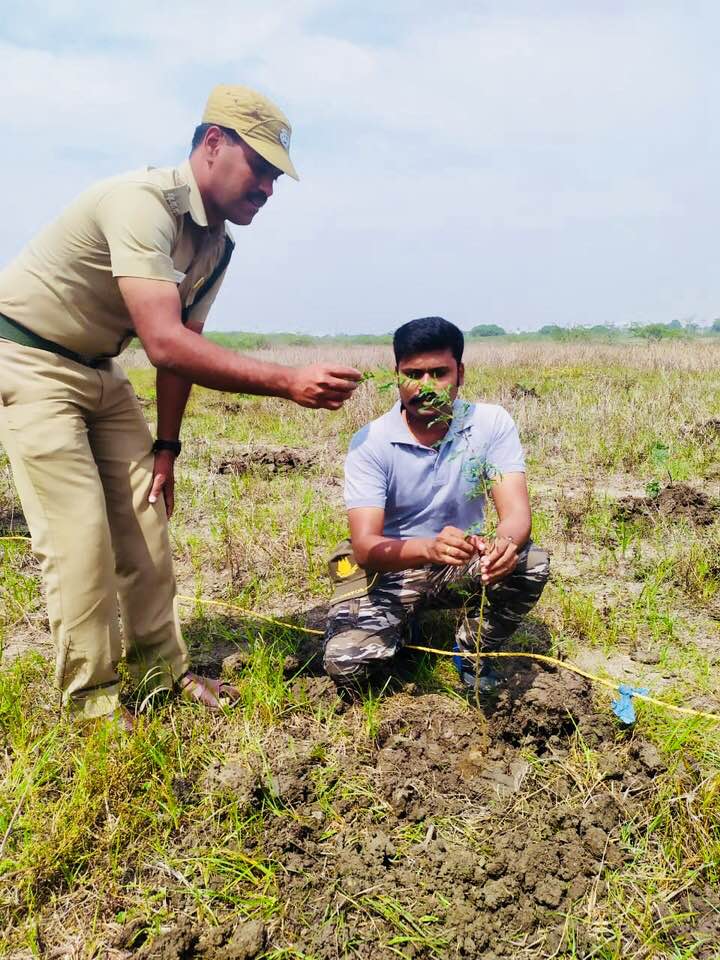
“Mangroves provide natural protection against calamities such as tsunamis and floods. They also keep the salinity of the underground water in check due to the filtration process and boost the biodiversity of plants and animals. So we collected seeds of the endangered species and planted them on 65 acres of land. For the remaining 35 acres, we desilted the land with sand and replanted it. We are observing the return of migratory birds like black-winged stilts, kingfishers, sandpipers, grey herons and common greenshanks,” says Sathish.
As for the conservation of Olive Ridley Turtles, Sathish and the team carried out a collection drive and have collected 40,000 eggs over three years. The eggs were submitted to the local hatchery. Around 70 days after submission, the hatchlings are released into the local beach. The team has achieved a survival rate of over 95% for these turtles. The officer also directed the fishermen to not cut the clippers of the turtles, as artificial limbs are not available in India.
“We told them how the turtles are important for the marine life’s ecosystem. They keep the jellyfish in check as they feed on them,” adds Sathish.
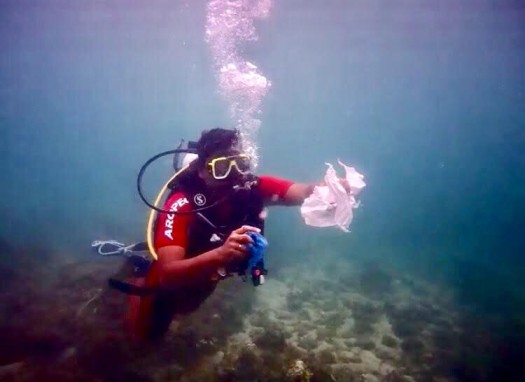
To ensure that all the efforts towards marine conservation are not marred by water pollution, the officer formed a scuba diving team, which carries out underwater plastic cleanup drives twice every month. On average, the team has removed 100 kilos of water per dive.
Edited by Divya Sethu
If you found our stories insightful, informative, or even just enjoyable, we invite you to consider making a voluntary payment to support the work we do at The Better India. Your contribution helps us continue producing quality content that educates, inspires, and drives positive change.
Choose one of the payment options below for your contribution-
By paying for the stories you value, you directly contribute to sustaining our efforts focused on making a difference in the world. Together, let's ensure that impactful stories continue to be told and shared, enriching lives and communities alike.
Thank you for your support. Here are some frequently asked questions you might find helpful to know why you are contributing?













